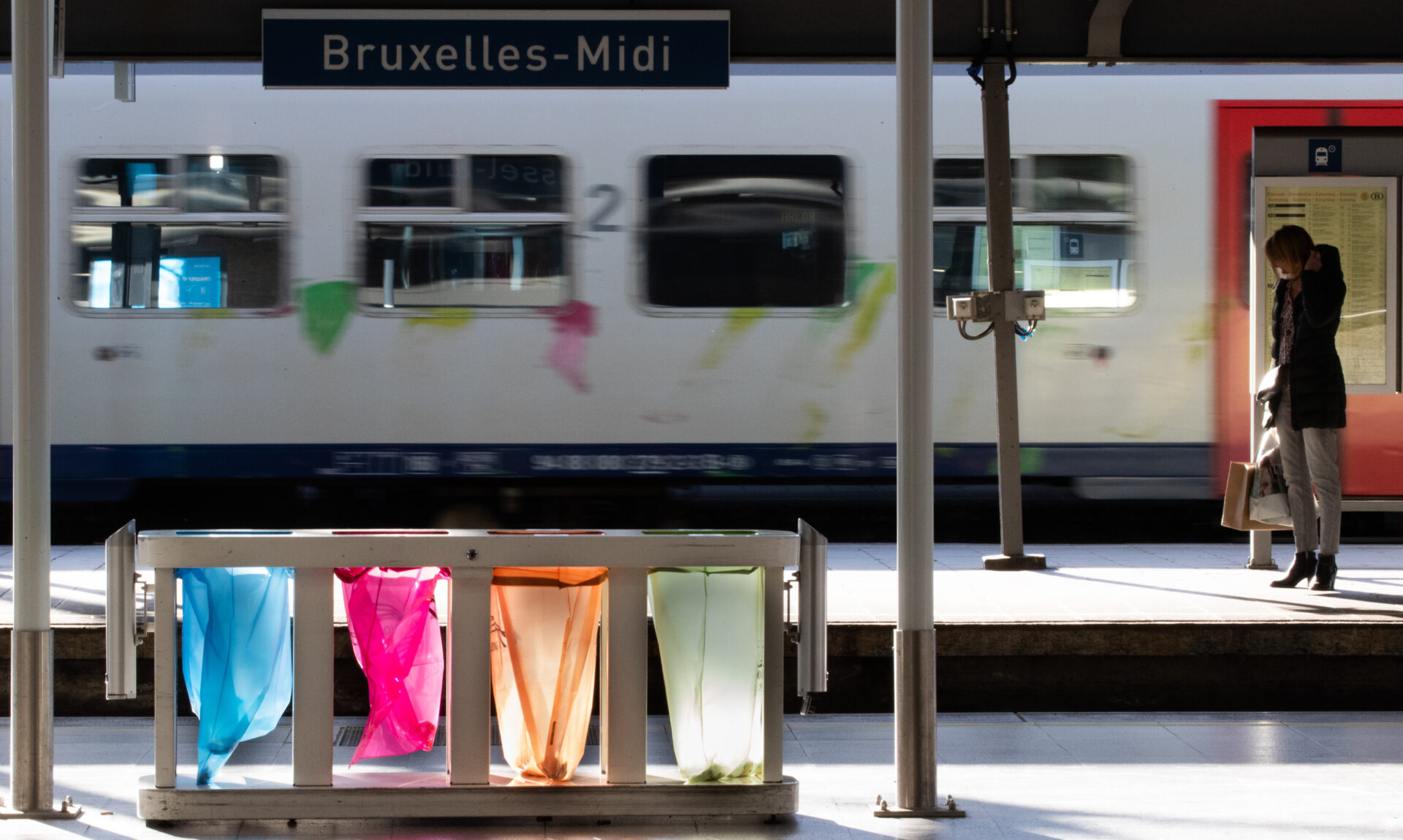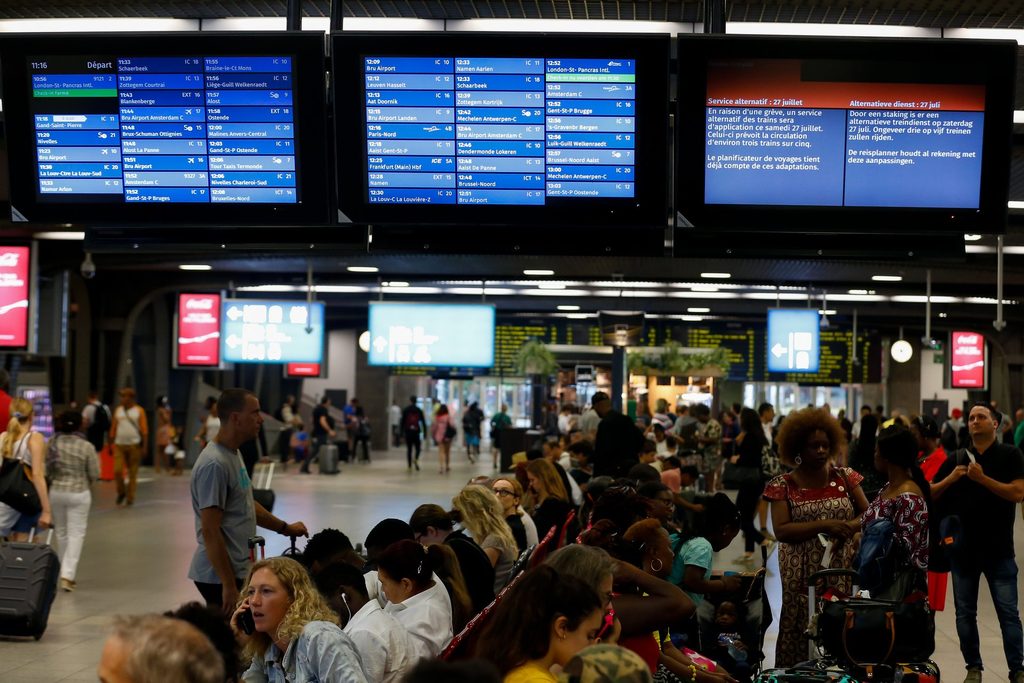The second 48-hour strike on Belgium's railways will start on Tuesday evening, leading to disrupted train traffic across the country over the next two days. Find out how your route will be affected below.
In October, a double two-day strike was announced by the two railway unions (for SNCB, Infrabel and HR Rail). The first action took place from 22:00 on Tuesday 7 November until 22:00 on Thursday 9 November. The unions said that the action, which will be the largest railway strike since 2017, has so far been a success.
This week, the second part of the large-scale strike will take place, from 22:00 on Tuesday 5 December until 22:00 on Thursday 7 December. All train traffic will return to normal from Friday morning.
How will services be affected?
As was the case during the last strike, an alternative train service will be provided for each strike day based on the number of staff who have indicated they will work.
"A different alternative train service will be provided for each strike day. Train services may therefore differ on Wednesday 6 and Thursday 7 December. Depending on this, disruption may be greater in some provinces than others," national railway company SNCB noted on its website.
Both Wednesday and Thursday's alternative train services can already be accessed. Three in five IC trains (inter-city, connecting the main cities in Belgium) will run, while two in five S (suburban trains in and around several cities) and L trains (stopping at every small station between bigger cities) will run.

The strike in November. Credit: Belga / Benoit Doppagne
All P-trains, operating during rush hours, will be cancelled. In certain regions of the country, however, the offer could be different on Thursday. Wednesday's alternative service can already be consulted on the travel planner or on the SNCB website and app. The exact service on offer on Thursday will be available from Wednesday morning.
For most trains that do not run, an alternative route (with a possible transfer) will be made possible. Passengers are advised to plan their journey on the day of departure.
People who arrive late at work or school due to the strike can download a 'disruption certificate' (attestation de perturbation) on the SNCB website, which will be available seven days after the strike. Financial compensation may also be claimed on a case-by-case basis.
The general rule is that passengers are entitled to compensation if they are delayed by more than 60 minutes during their train journey or if their train does not run – but this does not apply if they were made aware of the delay before they bought a ticket.
What are unions striking for?
Originally, the three railway unions organised the strike to voice their dissatisfaction with the company's restructuring and cost-cutting measures and the course of negotiations on these internal reforms.
They also stressed they were unhappy with some of the management's intentions, such as the proposal to halve the 20 minute preparation time given to the train conductor before their service.
However, the Christian union ACV Transcom has since withdrawn its strike notice, which was confirmed by SNCB.
"Not all unions are calling for this strike. After constructive talks and concrete commitments by management, ACV Transcom earlier withdrew its strike pledge. The socialist and liberal unions nevertheless decided to strike again."
"Management considers this action by ACOD Spoor and VSOA Spoor unacceptable, especially for train passengers," SNCB noted.

